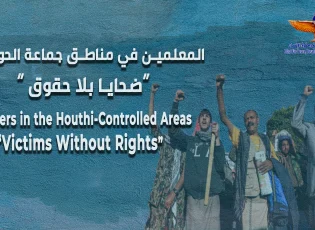General background
Enforced Disappearance is defined as the arrest, detention, abduction or any other form of deprivation of liberty by agents of the State or by persons or groups acting with the authorization, support or acquiescence of the State, followed by a refusal to acknowledge the deprivation of liberty or by concealment of the fate or whereabouts of the disappeared person, which places such a person outside the protection of the law (Article 2 and Preamble of the Declaration on the Protection of all Persons from Enforced Disappearance). Enforced Disappearance is characterized by three combined elements: deprivation of liberty against the will of the person; involvement of government officials, at least by acquiescence; and refusal to acknowledge the person's deprivation of liberty or to conceal the fate or whereabouts of the disappeared person.
In a related context, disappearance has a double negative effect that paralyzes both the victim deprived of the protection of the law, frequently subjected to torture and in constant fear for their lives, and on their families who are ignorant of the fate of their disappeared loved ones, and are torn by conflicted emotions of hope and despair. The suffering of these families may extend to long years; they continue to cling to any glimmer of hope that would disclose the whereabouts of their disappeared relatives. Also, enforced disappearance is often used as a strategy to spread terror within communities, and feeling of insecurity generated by this practice is not limited to the close relatives of the disappeared, but also affects their communities and society as a whole.
Accordingly, the United Nations celebrates, on August 30 of each year, the International Day of Victims of Enforced Disappearance, in an attempt to shed light on the suffering of the victims, put pressure on governments accused of practicing such arbitrary behavior, and try to find ways to help the victims and their families. Commemorating this day was first proposed by Latin American Federation of Associations for Relatives of the Detained-Disappeared (FEDEFAM), a non-governmental organization founded in 1981 in Costa Rica as a local and regional association of groups actively working against secret imprisonment and enforced disappearance in a number of Latin American countries. It is worth noting that the International Committee of the Red Cross is the only institution that allowed access to certain categories of prisoners, thus enabling minimal contact and inspection about their treatment.
In a related context, and at the global level, the vast majority of victims of enforced disappearance are men; however, women often lead the efforts to find out what has happened in the minutes, days and years since these disappearances- exposing them to the risk of intimidation, persecution and violence. Enforced disappearance is a serious problem in many countries, in all countries worldwide, including: Iran, Yemen, Syria, Mexico, Bangladesh, Spain, Sri Lanka, democratic Laos, Bosnia and Herzegovina, Qatar, Iraq, South Africa and Zimbabwe. It should be noted that every case of enforced disappearance violates many other rights; such as the person's right to security and dignity, freedom from torture, the right to humane conditions of detention, the right to legal personality and other rights.
Based on the foregoing, and coinciding with the United Nations International Day of the Victims of Enforced Disappearances, Maat for Peace, Development and Human Rights reviews, in this report, enforced disappearance in light of international law and international mechanisms related to the investigation of its cases. Maat highlights the crimes of enforced disappearance in some countries of the Middle East, in which many reports have been received regarding these cases such as Iraq, Syria, Qatar, and Yemen, and finally, presents recommendations that we hope the governments of countries will take into account, study, and implement.

 |
 |











